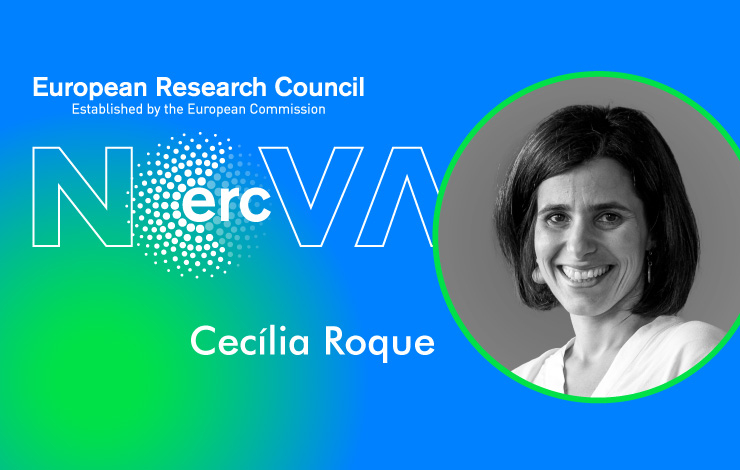17-01-2024

Cecília Roque, professor at NOVA FCT Department of Chemistry and researcher at the Applied Biome Sciences Unit | UCIBIO-NOVA FCT, has just been awarded a European Research Council (ERC) Proof of Concept Grant with funding totalling 150,000 euros. This is the third ERC grant awarded to the Portuguese researcher and the 17th from NOVA FCT. The European Research Council is the most reputable institution for awarding funds for scientific and technological research in Europe.
Over the next 18 months, with this funding from the UNMASK project, Cecília Roque's team will validate technologies inspired by olfaction for the diagnosis of neurodegenerative diseases, such as Parkinson's and Alzheimer's, which affect a large part of society and have a high economic and social impact. The research team will work closely with hospital clinicians to validate the technological component of the project, as well as with the Italian DayOne team to validate and develop the business.
This ERC grant is a continuation of the extended project 'SCENT: Hybrid Gels for Rapid Microbial Detection', and the researcher's first ERC grant. This project pioneered an innovative class of bio-based materials, for example using gelatine, which are sensitive to volatile compounds (odours) and other disease biomarkers released by the body. "The new materials change their properties in the presence of disease biomarkers, generating signals that are collected and then analysed by artificial intelligence tools," explains Susana Palma, a member of the project team.
Currently, most clinical diagnostic tools are still invasive, which means they require taking blood or other samples from the body, often causing stress, pain and discomfort for the patient. After developing the SCENT technologies, the team has focused on carrying out technological and market validation of its olfactoryinspired technologies. Despite having numerous applications, "our goal is to validate SCENT technologies for fast, patient-compatible diagnostic tools, using non-invasively collected body samples such as urine as a source for diagnosing diseases. We are also analysing clinical applications for which current diagnostic tools are expensive, time-consuming or non-existent," says Cecília Roque, principal investigator of the research team.
The validation of the technology and the market by Cecília Roque's team is being made possible by funding from the European Research Council for two Proof of Concept grants. The first ERC Proof of Concept grant, for the ENSURE project, centres on validating the technology for bladder cancer monitoring, "since we want to relieve patients and doctors by reducing the number of invasive procedures," adds team member Carina Esteves. And now it's on to olfactoryinspired technologies for diagnosing neurodegenerative diseases.